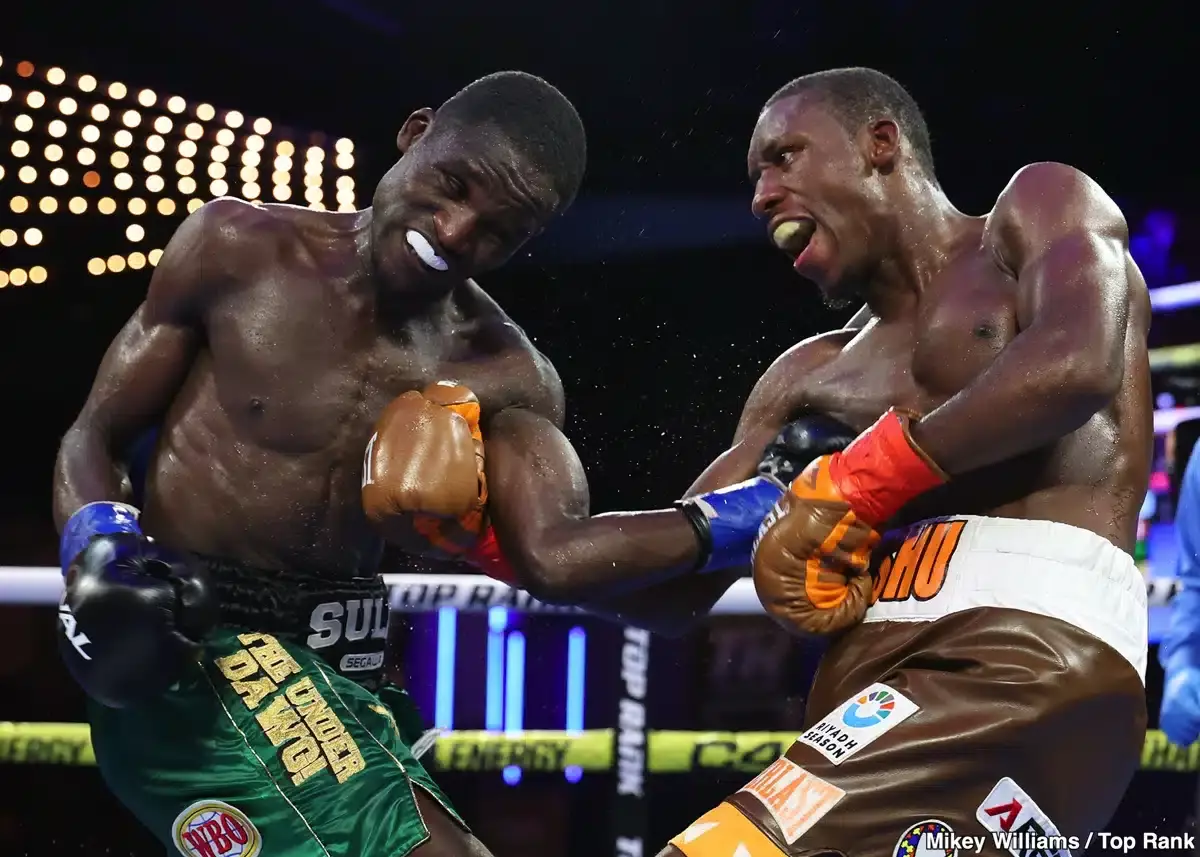In an intensely scrutinized bout held at Madison Square Garden, New York City, Bruce Carrington (13-0, 8 KOs) faced off against Sulaiman Segawa (17-5-1, 6 KOs) in a match that ignited a debate about the integrity of boxing judging. Carrington, a local favorite, was awarded a majority decision after ten rounds, a verdict that many critics deemed questionable. Despite Carrington’s undefeated record and home advantage, it was Segawa who appeared to control much of the bout with more effective striking and crafty defense.
The aftermath of the decision showed the growing frustration among fans, as boos erupted from the New York crowd, a stark contrast to the expectations for Carrington, who typically enjoys strong local support. The bout’s scoring—95-95, 97-93, 97-93—raised eyebrows, notably during a time when the disparity in performance seemed clear. Analysis from various commentators, including ESPN’s Tim Bradley, echoed the sentiment: Segawa dominated the match with a skill that left most observers puzzled by the official results. A consensus emerged that Carrington’s victory was not only unmerited but exemplified a “hometown decision,” which could undermine the credibility of boxing as a sport.
During the fight, it was Segawa’s superior boxing ability and ring generalship that stood out. Notably, in the early rounds, Segawa delivered powerful combinations, including a remarkable eight-punch flurry in the second round that visibly hurt Carrington. The fight clearly exhibited Segawa’s strategy, effectively evading Carrington’s shots while countering with precision. After facing Segawa’s relentless offense, Carrington’s activity diminished significantly past the fifth round, revealing his hesitance to engage further due to Segawa’s power punches.
This erosion of Carrington’s confidence was palpable; he often resorted to missing shots without setting up effective counters, culminating in an unsatisfactory performance for his supporters. In the final rounds, Carrington attempted a late surge, but again, he failed to connect effectively, leaving many pondering how the judges could score in his favor.
Moving forward, the boxing community and Carrington’s promotional team, Top Rank, face a critical crossroads. They must address the controversy raised by the bout: either arrange a rematch to clarify the fight’s outcome or consider slowing Carrington’s trajectory in the competitive landscape of boxing. The decision holds implications not only for Carrington’s career but for the sport’s integrity as a whole.
The stakes are high; the boxing world demands accountability. The perception of fairness in officiating plays a pivotal role in maintaining fans’ trust and interest. Thus, reform in scoring practices and measures to uphold transparency in officiating are essential to restoring confidence in boxing as a sport.
Carrington’s contentious decision not only casts a shadow on his career trajectory but also sparks a vital conversation surrounding the ethics of judging in boxing. The sport needs to address these discrepancies to uphold its legacy and credibility for its dedicated fanbase.

